Snellville Adults Hit B’nai Mitzvah Goal
Five adults from Snellville’s Temple Beth David celebrate milestone event despite COVID rules that limited attendance and reception.
The pandemic clouded what would normally have been a major adult b’nai mitzvah event to attract a large turnout in Temple Beth David’s Sunrise Sanctuary followed by a festive, highly decorated and sumptuous reception.
It was back in December 2020 when five adults from the Snellville synagogue answered their rabbi’s invitation to immerse themselves in Jewish study for the next several months, culminating in a b’nai mitzvah held May 15. The event was attended by about 20 guests in person and livestreamed with a small catered spread afterwards.
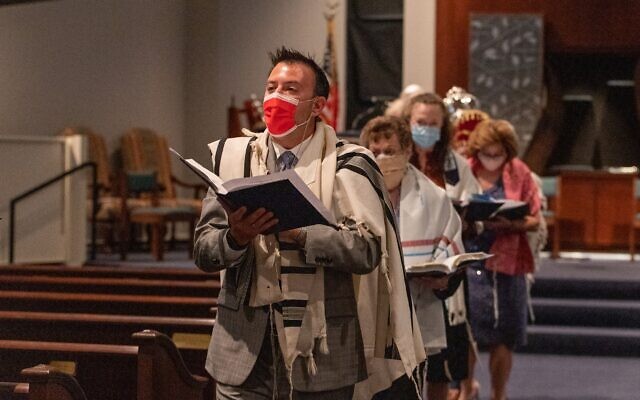
Rabbi Jesse Charyn said that without the attention to the party aspect of the accomplishment, the focus remained on the core of the experience – the study of Torah.
The synagogue has been encouraging its members to grow Jewishly and gain the skills and confidence to lead Shabbat services, because “Judaism is an action,” he said.
Hearing each b’nai mitzvah participant reading Hebrew from the Torah while standing under the synagogue’s new ner tamid (eternal light) created by glass artisan Claude Riedel, spiritually enhanced the event, Charyn added.
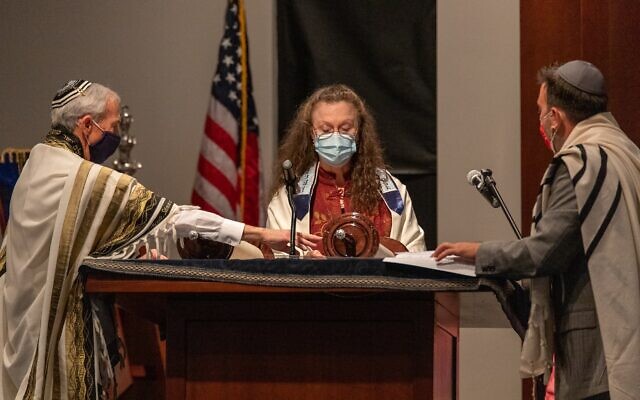
Commenting on the event, synagogue vice president and participant Robert (Bobby) Horowitz wrote in an email to the AJT, “Although TBD is located a long way from the mainstream of Jewish life in Atlanta, it is through Rabbi Jesse’s innovative programs like the B’nai Mitzvah that will help maintain a Jewish presence in growing Gwinnett County.”
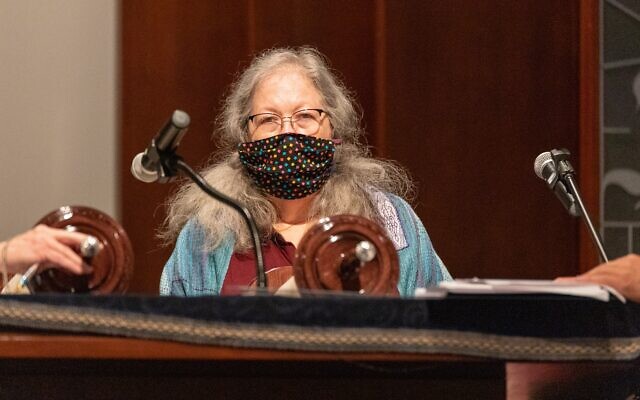
Becoming an adult bat mitzvah were: Judi Kern, Genie Nickelsberg, Shelly Pirkle and Denise Whitlock while Horowitz became bar mitzvah. In interviews with Charyn and the b’nai mitzvah class, the AJT learned how each person, with rabbinical guidance, carved out a personalized approach to their studies.
Charyn said, “The pandemic resulted in a much more demanding schedule for my students, yet did not lower expectations; if anything, they were held to an even higher standard for personal and collective Jewish growth.”
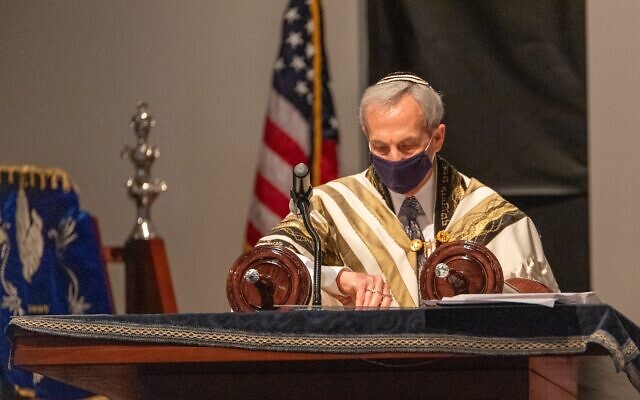
He said he believed it was most important that each participant read directly from Torah. They began the program with various levels of Hebrew language study, some not even feeling fully comfortable with the alef-bet. All 20 sessions, about two hours each, were held on Zoom, but rehearsals took place in person in the synagogue sanctuary.
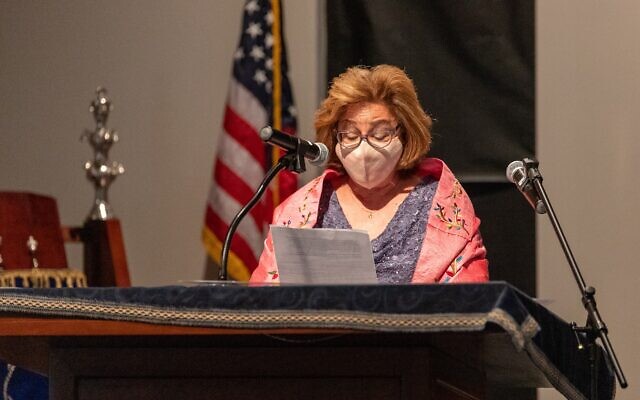
Each b’nai mitzvah prepared a d’var Torah, making a reference to the week’s portion from the Book of Numbers, Bamidbar, which means in the wilderness. Their remarks also shared personal stories of what brought them back to Judaism in new ways.
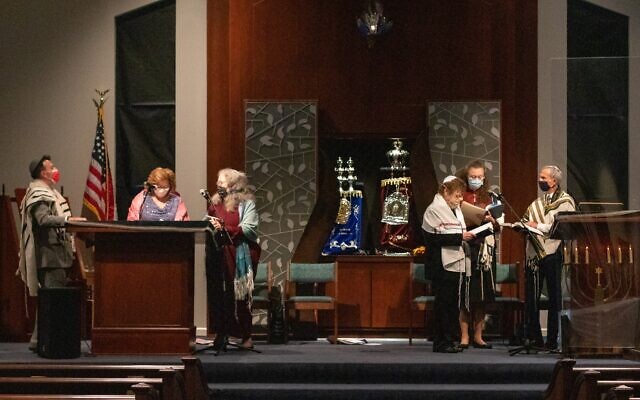
For Kern, growing up in an Orthodox congregation never afforded the opportunity for either a formal Jewish education or a bat mitzvah. She began studying Hebrew with Charyn as a “way to connect with our heritage and the prayers themselves,” she said. In his d’var Torah, Horowitz stated, “I should teach Torah not only through my words, but through my actions as well. My relationships with others, be they congregation members or total strangers should articulate the tenets of ethical monotheism which reflect our unbending faith in Hashem.”
Becoming a Jew by choice as a young adult, Pirkle said that when all five adult b’nai mitzvah recited the “Shema” prayer together during the service, it brought her back to hearing the same prayer at 12 years old while attending a comparative religion program. Nickelsberg noted that the added benefit of the experience was having a “talented and passionate rabbi and a group of committed and caring students who more than once reached out to encourage and support my spiritual quest.”
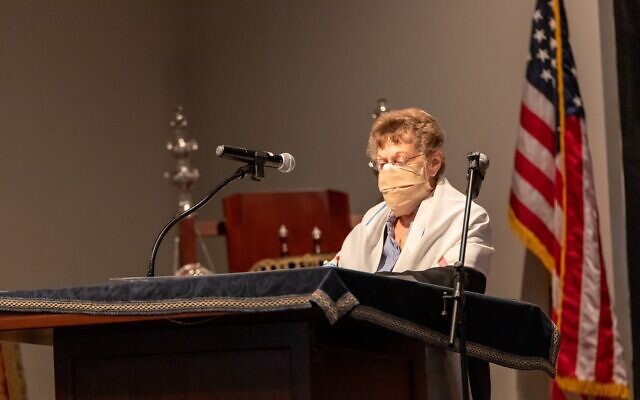
Whitlock stated in her d’var Torah, “I am thrilled that I have read from the holy sefer Torah.” She added, “Through my b’nai mitzvah class, I have learned about spirituality, ceremony, history and yes, I can even sound out Hebrew.”
To recognize their achievements, participants received embroidered Shabbat challah cloths. “One reason for TBD choosing this gift was because of the phrase ‘ein Torah ein kemach, ein kemach ein Torah,’ translated to say: as Jews we need both physical sustenance and spiritual sustenance,” Charyn wrote in an email.
Following pandemic protocol, a small reception after the ceremony included kosher cold cuts and the following day, Nickelsberg and her husband Barry, a volunteer cantor and former synagogue president, hosted a dairy meal at their home, including vegetable lasagna and cheesecake in honor of the holiday of Shavuot.
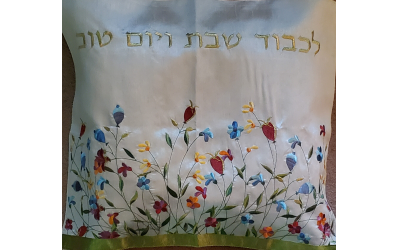
“Now that we have completed this portion of our collective journey, there is a major sense of accomplishment, but even more importantly a deeper connection between the five of us in cohort,” Kern said in an interview with the AJT. Pirkle is already wondering what synagogue classes to take next or if she can resume the group’s weekly Talmud discussions.



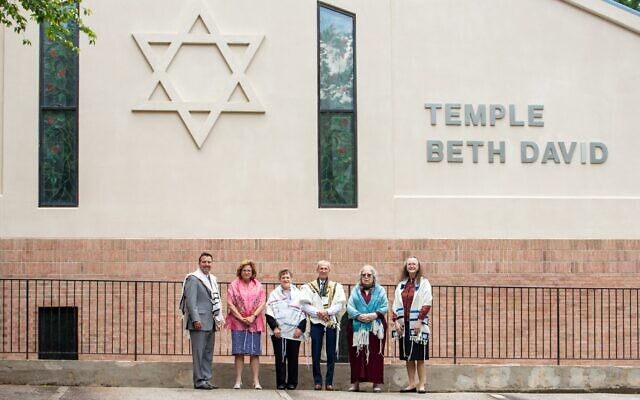
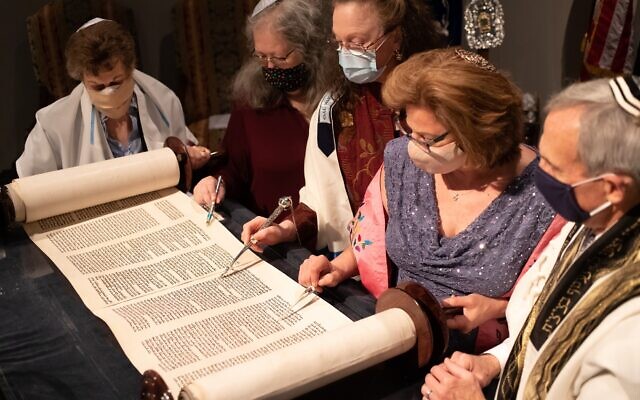
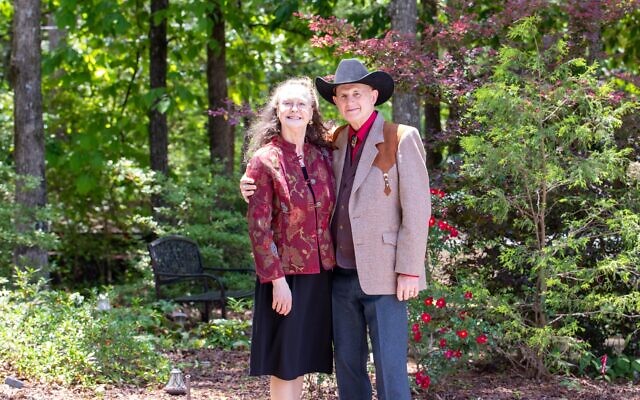
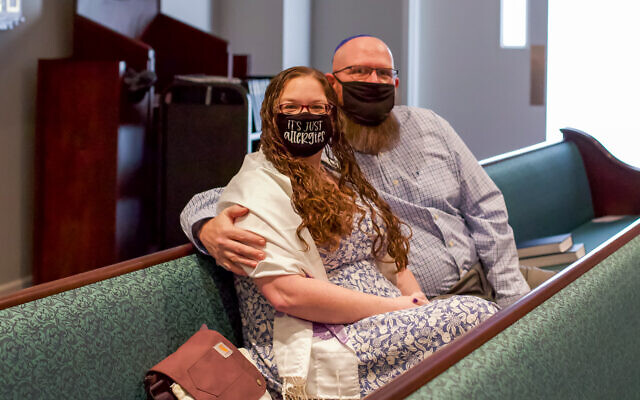
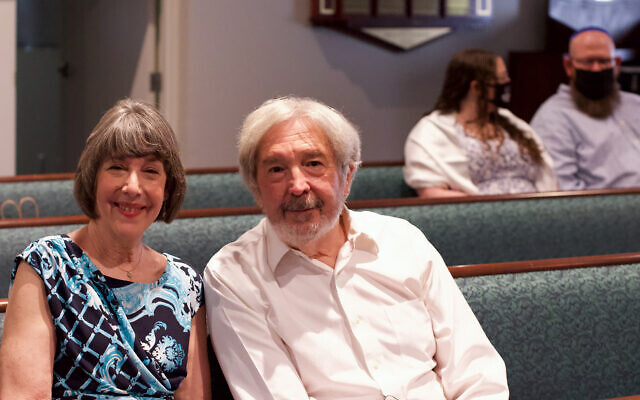
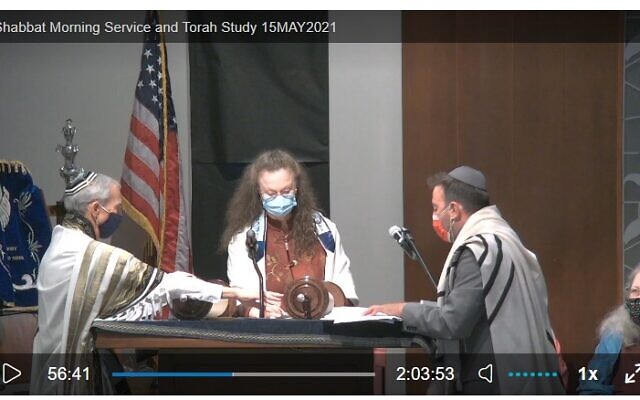
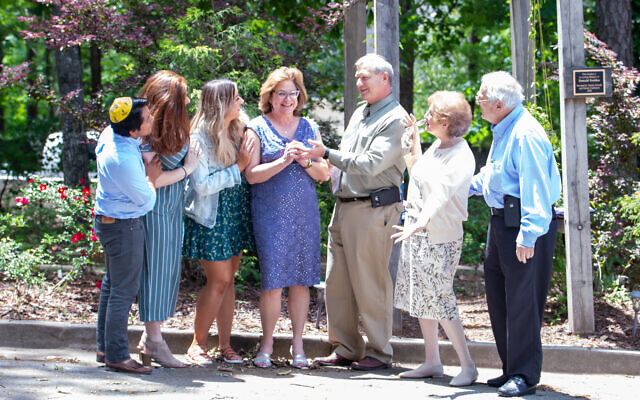
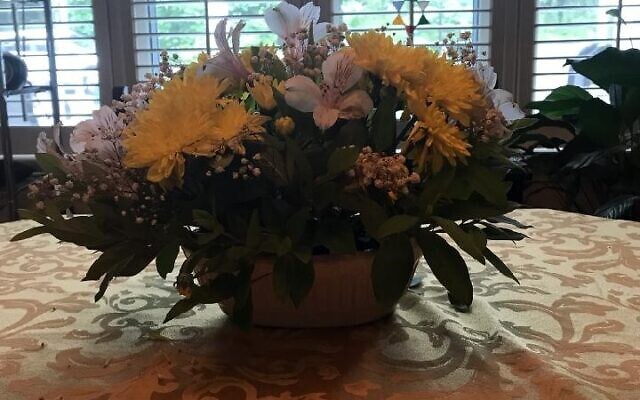
comments